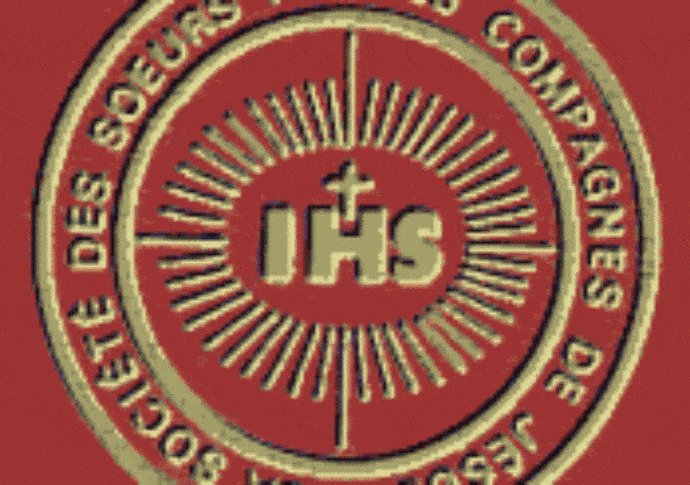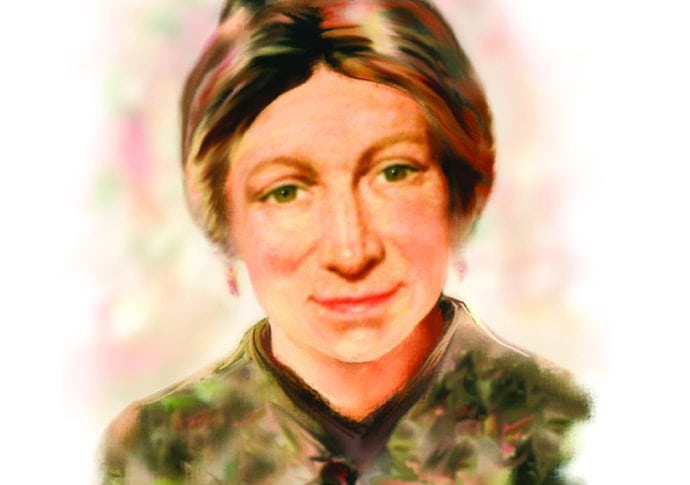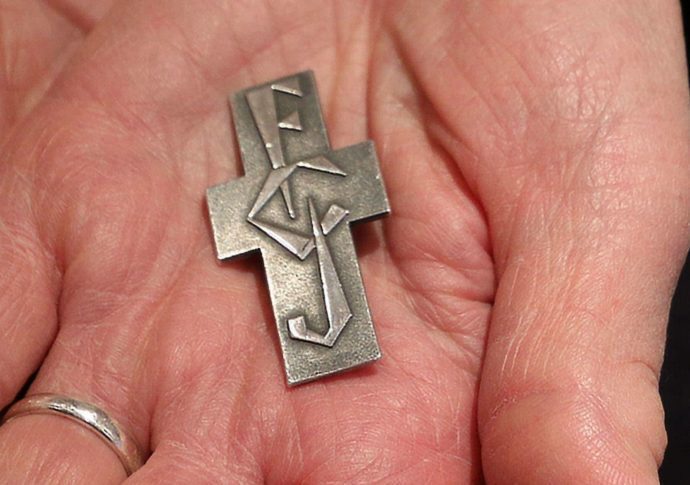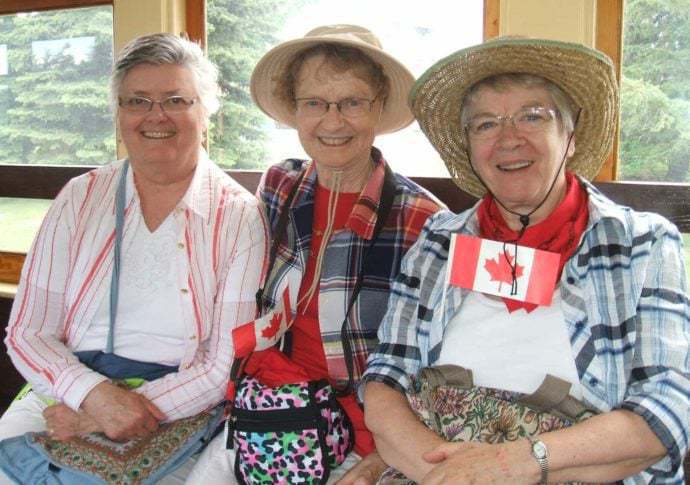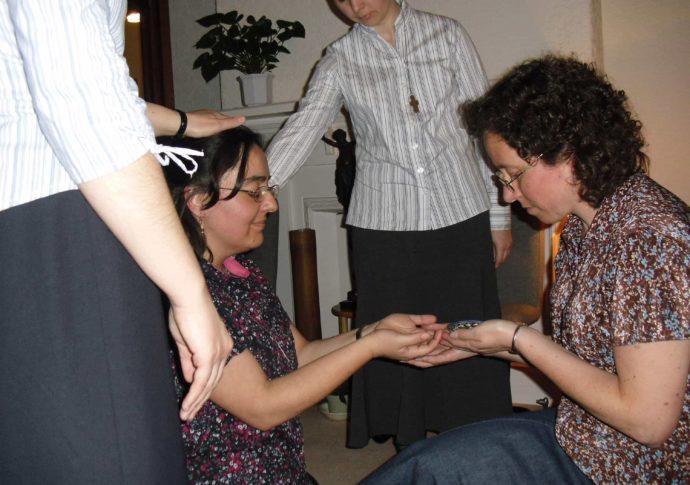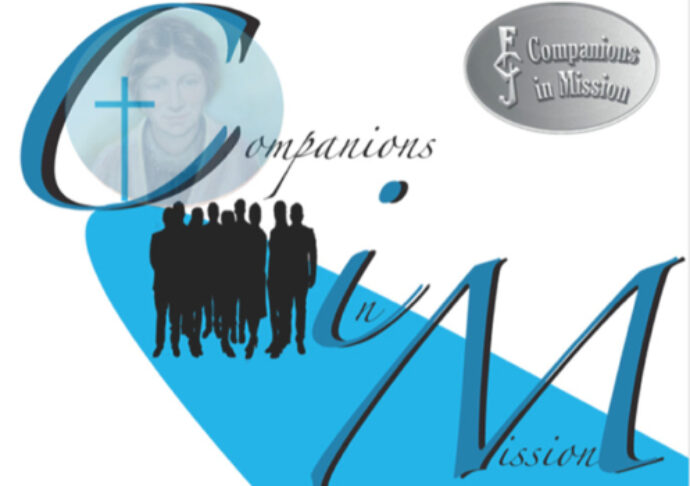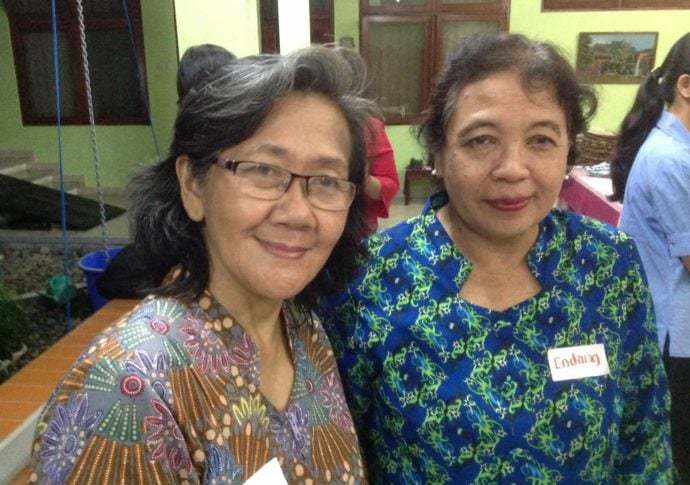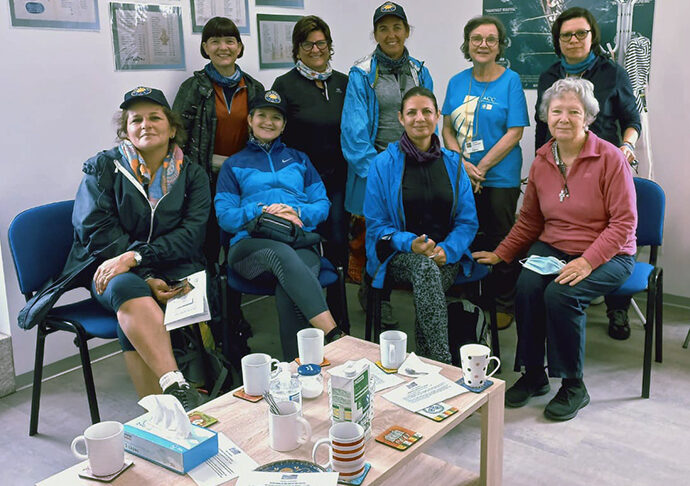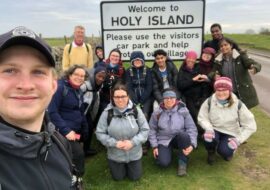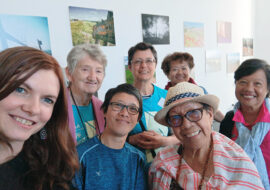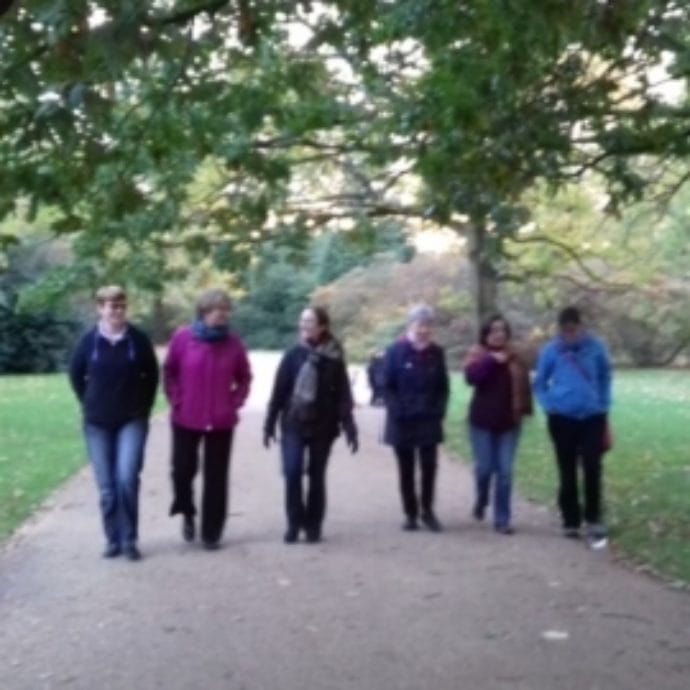Camino Companions is an FCJ project in Santiago de Compostela to offer pilgrims a space to articulate and find meaning at the end of their Camino. One of the pilgrims who visited the space in 2022, Tim Fetherston, writes about his experience
I narrowly escaped the successful attentions of a pickpocket the other day. In a crowded shop in Regent Street, somewhat distracted and no doubt utterly gobsmacked at the price of everything, I became vaguely aware of an ever-so-gentle tug at my clothing. I jumped back, and the pickpocket melted away into the crowd before I had even computed what had been going on. I was annoyed, and I felt stupid, but fortunately I still had my valuable possessions (such as they were). Afterwards, though, I reflected on how truly professional it had been. Whilst I’m not defending or praising that kind of criminal behaviour for a moment, there’s no doubt – it was really slick. It also struck me how, in a way, it was an allegory of everyday life: we can so easily and surreptitiously be robbed of the precious things that really matter to us, by the demands of our lifestyle, by circumstances, relationships or events, that we may not even know that these precious things have gone until it’s too late.

It was a real joy, after all the miserable restrictions of the Pandemic, to step out from Sarria this year on our second Camino. Our previous Camino had been some four years previously, and it seemed like an age ago. It didn’t take long for us to begin to unwind, to start to notice some of the legions of wonderful things which we ignore every day – the sparkling jewel-like dewdrops on the hedgerow flowers, the gossamer wisps of mist shrouding the hills in the early morning, and the random ‘guest appearances’ of horses, sheep and goats, sharing our muddy paths as grubby fellow-pilgrims. And the kind, gentle, comforting blanket of near-silence. The petty frustrations, annoyances and general background noise which all blight our working days gradually started to melt away, and we were able to see the beauty all around us with renewed sight. In rural Spain, of course, life is rather slower than in our often-frantic lives, and we were able to change down a gear or two to match the pace of living.
We quickly realised on our walk that after the Pandemic, some things on the Camino were unchanged, and some things were different. The hospitality, the beautiful scenery, the simple food and the welcome cold beer – all that was gloriously unchanged. However, some things were subtly different. Some hospitality businesses hadn’t survived. Some had survived but were clearly struggling. And one of the striking things we noticed was that amongst the fellow travellers whom we met, there were many more people who professed absolutely no religious or spiritual dimension to their Camino. Indeed, some seemed unaware that there even WAS such a dimension. We found ourselves explaining to some fellow travellers that it would really be worth seeking out the Cathedral and attending a service or two there, and looking up some of the history.

It made me wonder WHY people were walking the Camino in the first place. Everyone has their own reasons, I guess. But everyone – at least everyone whom we spoke to – was carrying a heavy burden of some sort. In a way it was remarkable that in our brief encounters, they were sharing these burdens with us. Broken relationships, worries about children, uncertainty and fears for the future – all these and more were the things which were weighing people down (in addition to their gigantic backpacks!) So maybe everyone has their own spiritual impulse to seek a remedy for some unhealed wound in their life, even if they don’t acknowledge that it is in fact a spiritual quest. Perhaps acknowledging and sharing these burdens was something they needed to do – even if they didn’t know they needed to do it!
Which is why I think the ministry of the FCJ sisters, as ‘Camino Companions’ in the Santiago English language chaplaincy is so important. Arrival in Santiago is, of course, an emotional event for everyone, with a mixture of all sorts of feelings – relief, satisfaction perhaps, maybe a sense of regret that the pilgrimage has come to an end. The Camino Companions offer a safe space for pilgrims to share their experience, and ‘debrief’. (I’m sure there must be a theological term for ‘debrief’, but I don’t know what it is..!) I found it an intensely moving experience to hear what had impelled my fellow bruised pilgrims to embark on their journey and ‘leave the world behind’ for a week or two. To be honest, hearing how others had carried their burdens made my own struggles seem trivial by comparison. I thought the whole FCJ ministry was a tremendous example of the church seeking to encounter people ‘where they actually are’ rather than ‘where the church would like them to be’. And in a small way, we were able to support each other, in a sense binding each other’s ‘spiritual blisters’ (if not the physical ones).
Ultimately, everyday life has to resume. The burdens in our lives are probably still there, but hopefully our attitude to them is just a little different, and we have realised that we are not alone, and are in fact all walking our journeys together. And perhaps we have resolved to be more aware of the challenges in our lives which would seek, stealthily, to ‘pick our pockets’, robbing us of the joy and peace which should be the birthright of all of us who try, however inadequately and imperfectly, to follow the Christian way.
Read more about Camino Companions on this website, follow Camino Companions on facebook, or get in touch at caminocompanions @ gmail.com



